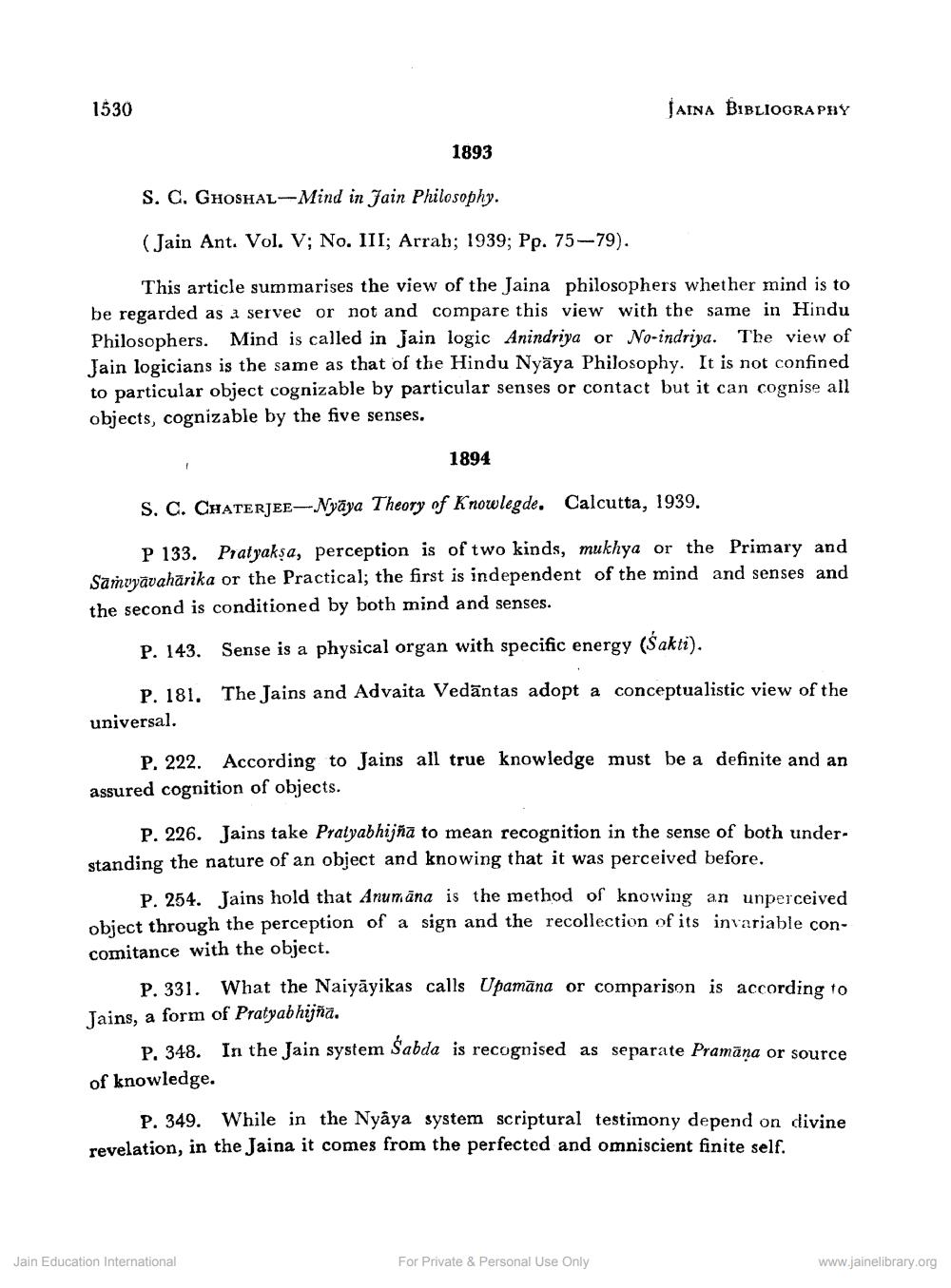________________
1530
1893
S. C. GHOSHAL-Mind in Jain Philosophy.
(Jain Ant. Vol. V; No. III; Arrah; 1939; Pp. 75-79).
This article summarises the view of the Jaina philosophers whether mind is to be regarded as a servee or not and compare this view with the same in Hindu Philosophers. Mind is called in Jain logic Anindriya or No-indriya. The view of Jain logicians is the same as that of the Hindu Nyaya Philosophy. It is not confined. to particular object cognizable by particular senses or contact but it can cognise all. objects, cognizable by the five senses.
1894
JAINA BIBLIOGRAPHY
S. C. CHATERJEE-Nyaya Theory of Knowlegde. Calcutta, 1939,
P 133. Pratyaksa, perception is of two kinds, mukhya or the Primary and Samyavaharika or the Practical; the first is independent of the mind and senses and the second is conditioned by both mind and senses.
P. 143. Sense is a physical organ with specific energy (Sakti).
P. 181. The Jains and Advaita Vedäntas adopt a conceptualistic view of the
universal.
P. 222. According to Jains all true knowledge must be a definite and an assured cognition of objects.
P. 226. Jains take Pratyabhijña to mean recognition in the sense of both understanding the nature of an object and knowing that it was perceived before.
P. 254. Jains hold that Anumana is the method of knowing an unperceived object through the perception of a sign and the recollection of its invariable concomitance with the object.
Jain Education International
P. 331. What the Naiyayikas calls Upamana or comparison is according to Jains, a form of Pratyabhija.
P. 348. In the Jain system Sabda is recognised as separate Pramana or source of knowledge.
P. 349. While in the Nyaya system scriptural testimony depend on divine revelation, in the Jaina it comes from the perfected and omniscient finite self.
For Private & Personal Use Only
www.jainelibrary.org




